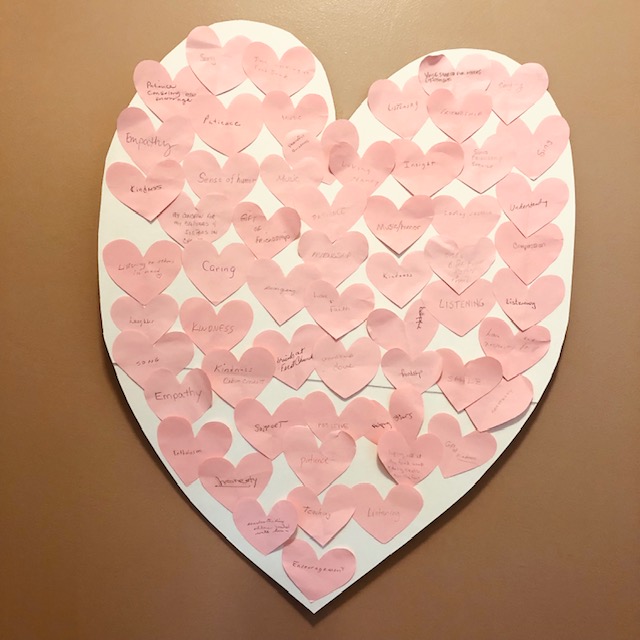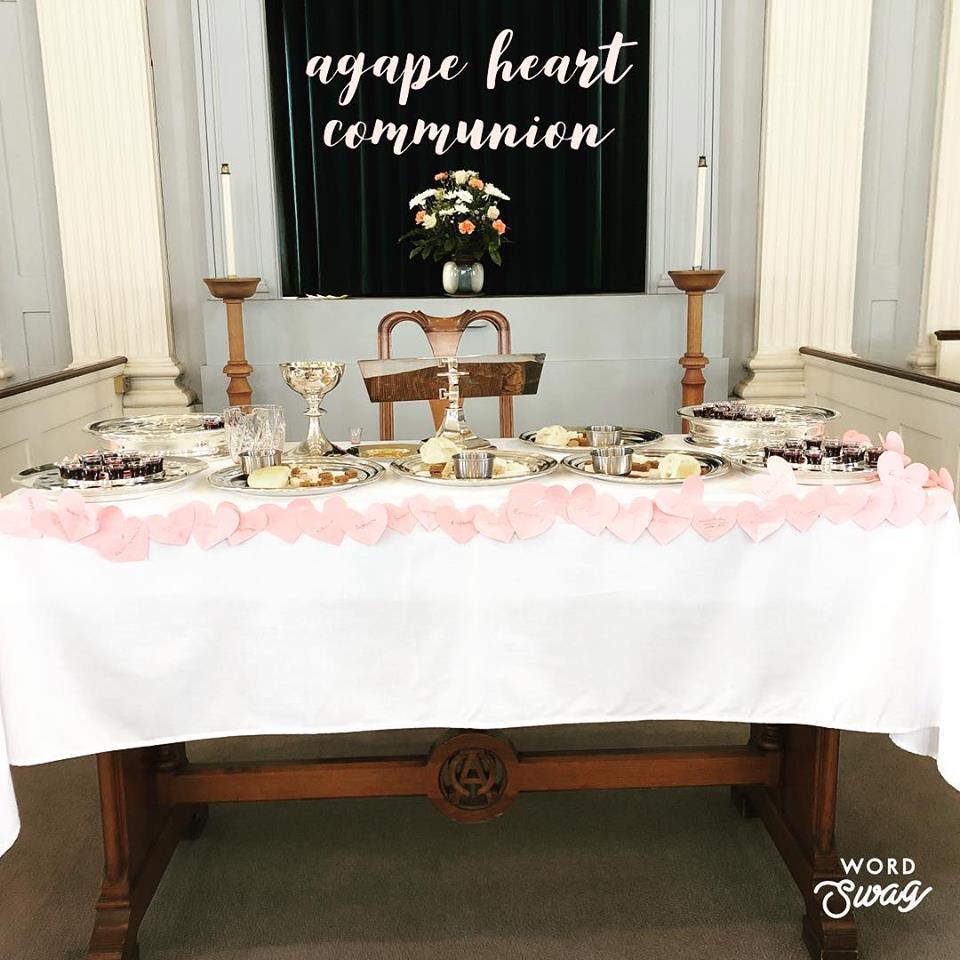YouTube Video of the anthem: Blest Are They ( Matthew 5:3-16: “The Beatitudes” ) by David Haas
That anthem is one of my favorites.
The composer, David Haas, has a way of melding words and notes to lift the spirit.
The beatitudes, the scripture we just heard sung, are often considered “feel good” scripture.
They make us want to rejoice and be glad, for we feel blessed and loved.
The composer bases this anthem on the version found in the gospel of Matthew.
Matthew has a softer, more spiritual take on these famous words of Jesus.
However, the lectionary draws us to the beatitudes in the gospel of Luke.
Luke gives us a more uncomfortable, but probably truer version.
It is tempting to tune out when we hear something hard.
I encourage you to pay attention to this 10 minute sermon and not write out your grocery list. 🙂
Listen closely to the words of Jesus found in the gospel of Luke.
Scripture: Luke 6:17-26
A couple big differences.
Luke only has four beatitudes:
Poor, hungry, weep, hated
Notice it is not “poor in spirit” as it is in the gospel of Matthew.
Luke does not spiritualize the words of Jesus.
Blessed are the poor.
Luke is literal here.
Blessed are those who are physically hungry.
Blessed are those who weep when the bills come in.
Blessed are those who are excluded or looked down upon in disgust.
Blessed are the poor.
Jesus is not glorifying poverty here.
It is not that the poor are uniquely holy.
Jesus says, “Blessed are the poor, for yours is the Kingdom of God.”
Jesus is offering a prophecy of what is to come.
He is describing the world as it will be when “thy kingdom come, thy will be done, on earth as it is in Heaven”
When God’s Kingdom is fully realized on earth,
There will be no more poverty.
Those who were poor will no longer weep and no longer starve.
At the same time, those who are rich will have a difficult time.
So Jesus says, “woe to you who are rich, for you have received your consolation.
Woe to you who are full now, for you will be hungry.
Woe to you who laugh, for you will mourn.”
Tough words.
When the Kingdom of Heaven is realized on Earth, will it simply be a role reversal?
Will those with wealth now be poor and the poor now rich?
Perhaps.
Perhaps God’s anger at the injustices in our world will result in punishment for those who wield power and wealth today.
God has been angry at the injustice in our world for a long time.
Most, if not all, of the prophets of the Hebrew Scriptures,
decry the neglect of the poor and call for justice for all God’s people: all should have enough to eat.
Jesus throws out the money changers in the temple for the way they rip off the poor.
Jesus would be enraged by the scams to strip people of their livelihoods and infuriated by the living conditions many of our fellow human beings’ face.
My parents are in Namibia, Africa right now to visit a client, and describe a poverty beyond imagination:
Houses concocted out of tin siding.
My dad, a technology guy, was shocked that the capital loss all WiFi the day they arrived.
Little sanitation facilities, so people go on the side of the road.)
Our world is not only far from equal, it is far from humane.
A role reversal would not be entirely unfair.
However, our God is also one of grace and forgiveness-
even forgiving those who sentenced Jesus to death on a cross.
Jesus called the tax collectors and spoke to the rich.
So I don’t believe the rich will be punished simply for being rich.
But when the Kingdom of Heaven is realized on earth, the rich will have some serious adjusting to do.
The rich will no longer be given special treatment.
The rich will no longer be able to buy people’s affections or courteous service.
The rich will not be able to use money to hide their mistakes.
To lose such privilege and power will certainly cause some grief, some weeping, some hungering for what was.
The beatitudes offer hope to the poor that this too shall pass.
When the Kingdom of Heaven is fully realized, poverty will pass away and those who were poor will rejoice.
The woes warn the rich that this too shall pass.
When the Kingdom of Heaven is fully realized, special status will pass away and those who were rich will weep.
This too shall pass.
Jesus may have been referring to the end of times, but his words ring true today.
We can work to reform our society and lessen the impact of poverty.
Indeed, Connecticut worked hard to house nearly every chronically homeless person.
(read about it here)
On the flip side,
The housing crash startled many Americans out of safety and into unemployment homelessness.
When I was a teenager my church took me to Boston for a program on homelessness.
In future years I would work with multiple homeless ministries,
But I still remember the first story I heard.
The man looked like my dad, but with a sturdy pair of boots and a beard.
He had been living on the streets for a number of years,
But it hadn’t always been that way.
At one point he had a nice house, a car, a salary job with benefits.
Then one misfortune after another and before he knew it,
He was on the streets of Boston.
He finished his speech with the warning:
Anyone can become homeless. We are all just steps away.
This too shall pass.
The wealthy can be brought down by addiction or illness or natural disaster.
The poor can be lifted up through luck or lottery or the hard work of reforming society.
This too shall pass.
Sorrow passes and moments of joy come.
Joyous moments simmer down to everyday life.
This too shall pass.
Depending on where you sit, that may bring joy or it may bring sorrow.
How then can we prepare ourselves for the unexpected upheavals and changes of life?
How can we prepare ourselves for the coming Kingdom of God?
Great structural changes need to be had to reform our society:
Healthcare reform, a living wage, and treating mental illness and addiction, would all help bring justice for all, drawing us closer to the Kingdom of God on earth.
But any big structural change is rooted in the spiritual practice of sharing our resources with one another.
Whether you believe the government should provide support or private non-profits should do so voluntarily,
both require those with more sharing their gifts.
It is not unlike the gift-sharing we started this month with.
At the beginning of the month we each wrote a gift we had and offered it in love on the Communion table. Louise and Nancy took the hearts and made one big heart.

On the front of your bulletin is a picture of our individual hearts come together into a big heart,
Each heart has someone’s gift, offered in love.
When all the gifts are shared we have a powerful force of love in our world.
A force powerful enough to truly bless the poor, the hungry, the broken-hearted.
A force powerful enough to realize the Kingdom of Heaven here on earth.
When we share our gifts, not only do we help build up the Kingdom of God,
We also prepare ourselves spiritually to live in that kingdom.
If you are rich, sharing what you have prepares you to live in a world of mutuality-
If you are poor, sharing what you have prepares you to live in a world of mutuality-
A world where you are respected and valued for who you are.
What we offer or share will be different- some have finances, some time, some skills, some insights-
But it is our gifts together that bring blessings to our world.
Whatever gifts we have been blessed with,
May we have the faith and strength to offer what we have to build God’s kingdom.
May we have enough hope and faith to trust that our gifts can make a difference in building up God’s kingdom.
May we have the courage and the heart to follow the call of Jesus. Amen.







